Study Modes: The New AI Battleground
A look at OpenAI, Anthropic, and Google's new study modes and what might come next.
Thanks to our Presenting Sponsor Hire Education for making the Edtech Insiders newsletter, podcast, events, and community possible.
Study Modes: The New AI Battleground
By: Alex Sarlin
We sat down with Dave Messer (Google Guided Learning PM) and Drew Bent (Anthropic Education Lead) to go deeper on their learning mode strategies. Some quotes from our conversations are included in this article. Listen to our full conversations in upcoming episodes of the Edtech Insiders Podcast.
Over the past few months, the world's leading AI companies have all unveiled innovations that are designed to transform learning. The convergence of AI and education is creating opportunities we've only dreamed about, and it's happening all at once. Let's recap this surge of activity:
May 5th: More than 200 CEOs + Code.org push for AI Education
June 30: Gemini in Classroom launches at ISTE
July 8: Microsoft, OpenAI & Anthropic Fund National AI Academy For Teachers
July 21st: Google and OpenAI Win Gold In International Math Olympiad
July 25th: Roblox Launches Learning Hub
July 23: Instructure + Open AI Launch IgniteAI Partnership
July 29: ChatGPT Introduces Study Mode
August 1: Presidential AI Challenge
August 6: Guided Learning in Gemini
August 7: OpenAI releases GPT-5
August 7: Google commits $1 billion for AI training in Higher Ed
These are exciting—dare I say, thrilling—times for those of us who are bullish about AI innovations for teaching and learning. But it's also head-spinning, and the ramifications for the rest of the edtech sector are still hard to parse. As these innovations roll out, three key trends are emerging:
Emerging Trends
Education Is a Key Big Tech Battleground
The world's most valuable companies are treating education like the next great platform opportunity, and for good reason. Google, Microsoft, OpenAI, and Anthropic aren't just building educational tools; they're positioning themselves as the infrastructure for how an entire generation learns to think alongside AI.
The top AI companies are in fierce competition with one another for talent, market share, and partnerships, as well as for mindshare among the next generation of AI-skilled workers (current university and high school students). The fact that education is one of the prime battlefields on which they are fighting (alongside coding, general productivity, and agentic automation) is exciting, and for many, a bit scary. As this battle unfolds, edtech point solutions are finding themselves consistently nudged toward irrelevance as the frontier models expand their territory.
The LMS Has Become a Core Entry Point
Learning Management Systems are proving to be the golden gateway into educational institutions. Google's deep integration of LearnLM, Gemini, and Notebooks into Google Classroom leverages their existing dominance in K-12, while OpenAI's partnership with Instructure could instantly give ChatGPT access to millions of higher education students through Canvas. Why are LMS integrations so powerful? They combine massive scale with rich data: every assignment, discussion, and grade becomes a context that could supercharge AI personalization. More importantly, they embed AI tools directly into educators' existing workflows rather than asking them to adopt entirely new platforms.
Educator Buy-In and Training Remains Essential
The success of AI in education still hinges on one critical factor: whether teachers embrace these tools or resist them. That's why we're seeing simultaneous pushes from edtech companies, nonprofits, and even teachers' unions to provide AI training and support.
The Current Battle: Study Modes
Right now, this competition is playing out most visibly in what we're calling the "Battle of the Study Modes." OpenAI, Anthropic, and Google have all launched dedicated learning experiences within their flagship products, and this represents a fundamental shift in how AI companies think about education.
This is a big deal for a few reasons:
Frontier Model Providers Are Directly Pursuing Education Consumers
The frontier model providers are getting clear data visibility into how often people are coming to their core applications looking either to explore their curiosity or seek formal educational outcomes (help with an assignment, passing a class, studying for an exam). As Drew Bent from Anthropic explains: "We released our Learning Mode this past spring after we saw a lot of the data from our research at the quantitative level in terms of studying over half a million conversations of Claude. We saw the need for the ability for Claude to not just answer questions, but also to ask you questions and to have Socratic dialogue and employ all the best practices that teachers and tutors do."
Building an application layer that allows users to turn LLMs into tutors, teachers, or learning companions at the click of a button is a natural extension of that need.
Tools Designed for Motivated Consumer Use
While these tools are educationally oriented, they aren't meant to be used exclusively in education settings. Do these moves have the potential to squeeze out third-party edtech companies whose core value proposition is making LLMs more educationally sound? Yes and no. Some student AI edtech use cases—creating flashcards, practice quizzing, turning class material into study guides—are directly covered by the learning modes. Any edtech company that focuses solely on this functionality now has a major new competitor.
But most use cases for educators, as well as most student use cases that involve actual implementation in educational environments—school-supported tutoring, mental health and wellness, early literacy, tools for neurodiverse and special needs learners—are still well out of the wheelhouse for these study modes.
Interestingly, the push for these tools came from students themselves. As Bent notes: "It was the specific moment I can remember the conversation we had with a focus group of college students. They were the ones who I think first even coined the term 'learning mode.' They were worried, and they are worried, about brain rot. That's the way they frame it."
What We're Learning from Testing
At Edtech Insiders, we've been playing with the various study modes and seeing a few early patterns. There are some obvious strengths: they tend to have friendly but authoritative tones, give the user lots of options and autonomy in guiding the conversation, use metaphors frequently to illustrate concepts, shift to practice quizzing and Socratic questioning at the drop of a hat, and try to avoid giving answers for the user.
Dave Messer from Google's Guided Learning team emphasizes this philosophy: "Learning isn't just about information. The simple example is: you could either have an encyclopedia or you could have a conversation with a helpful tutor. For Gemini, it's not done when you just get the information. It's done when you've engaged and you've really developed an understanding."
On the flip side, they are way too quick to respond before asking the 'why' behind the question. They ask the user more than one question at a time, they are not yet as adept at incorporating visuals and videos into answers as they should (and surely will) be, and they all still talk too darn much! In our light testing, a short question is likely to get a response of at least 150-200 words, which would take about a full minute to speak aloud. They act like a brainy know-it-all grad student who is so instantly excited about any topic that she has to hold herself back from launching into a long speech.
Here are a few comparisons of OpenAI ChatGPT's Study Mode (GPT-5), Claude Learning Project (Sonnet 4), and Gemini Guided Learning (Flash 2.5 Pro) responding to the same prompt:
Final Prediction: Multimodal Learning Could Be the Next Frontier
The next evolution of this study mode battle will likely be won by whoever masters multimodal learning experiences. Right now, text-based conversations dominate these platforms, but that's already changing.
Google is leading the charge with rich multimedia integration. As Dave Messer explains their approach: "We want to manage cognitive load. You can see actually in Guided Learning, we are including images and YouTube videos; these are ways in which, instead of just reading text, which could be cognitively taxing, by surfacing images sometimes that is the most helpful thing." This isn't just about AI-generated content—Google is incorporating YouTube videos, licensed educational images, and visual aids that mimic what great teachers do naturally.
OpenAI's GPT-5 brings updated multimodal capabilities that can ingest and process text, images, audio and video as inputs, interpret charts and diagrams, and create contextually relevant visuals. The question is whether they'll integrate Sora's video generation or other advanced capabilities to create truly immersive learning experiences.
Anthropic has focused more on voice interactions and coding capabilities through Claude Code, but even these tools demonstrate the potential for interactive, multimedia learning through games and simulations.
The companies that can move beyond text-heavy conversations to create rich, visual, interactive learning environments—complete with video, voice, and even VR/XR capabilities—will likely capture the next wave of student engagement. The study mode battle is just getting started, and we can't wait to see what comes next.
Join Edtech Insiders+
If you love Edtech Insiders and want to continue to support our work, consider becoming a paid subscriber! By joining Edtech Insiders+ you receive:
Early access to all Edtech Insiders events. No more sprinting to sign up for our monthly happy hours, edtech summits, and online conferences.
Access to our exclusive WhatsApp channel to connect with the Edtech Insiders community and discuss the latest trends and news in our space.
Access to exclusive member content, including interviews, panels, videos and articles.
All proceeds from subscriptions will help us invest in our podcast, newsletter, events, and community. Our goal is to make Edtech Insiders an enduring and sustainable community offering that connects the edtech ecosystem!
We would be so excited if you decide to join us as a member of Edtech Insiders+.
This edition of the Edtech Insiders Newsletter is sponsored by Tuck Advisors.
Since 2017, Tuck Advisors has been a trusted name in Education M&A. Run by serial entrepreneurs with over 25 years of experience in founding, investing in, and selling companies, we believe you deserve M&A advisors who work as hard as you do. Not all LOIs are the same. In fact they are often apples to oranges to cashews! Use our Deal Value Calculator to level set the real value of your LOI.
Have questions or ready to discuss M&A? Reach out to us.
Upcoming Events
WEBINAR: Improving Accessibility In the Age of AI
Join us for a live webinar on August 29th with founders who are leveraging AI to make learning more accessible for students with diverse needs and building tools for teachers who support them. Hear real-world success stories, see how AI is improving educational access, and gain a better understanding of how schools can support overlooked learners.
Save the date for now, RSVP link coming soon!
Community Announcements
1. Vote for Our Edtech Insiders SXSW EDU Panel
We’re thrilled to share that Alex Sarlin will be speaking on a proposed SXSW EDU 2026 panel: “More Than a Mascot: The Psychology Behind EdTech Loyalty.” Alongside fellow panelists Michelle Strom (BrainPOP), Chad A. Stevens, Ph.D (ClassDojo), and Margaret Honey (Scratch), Alex will explore how mascots and characters in edtech platforms build trust, attention, and lasting engagement through emotional connection and storytelling.
Community voting is a big part of the selection process — and it’s open now through August 24! Submit your vote today if you’d like to see Edtech Insiders ar SXSW EDU!
2. Cambiar Thrive’s New Funding Opportunity Aims to Close Education Data Gap
Cambiar Thrive’s Big Ideas Challenge will award $100,000 grants, with a subset of grantees eligible for $250,000+ of follow-on funding, to organizations with groundbreaking ideas on how to provide students and/or caregivers with easy-to-obtain, meaningful, and actionable information about their student’s K-12 education and development.
Apply now through Aug 31!
3. EdTech MBA Fall 2025 Fellowship is Open! Apply Now!
The EdTech MBA Community has launched its Fall 2025 Fellowship, connecting edtech companies with top-tier MBA talent from 60+ global programs for remote, 10-week projects in areas like product, growth, and strategy. Submit your project proposal by August 15 to tap into this high-performing, edtech-focused talent pool.
4. Now Accepting Applications: Cooney Center’s Sandbox for Literacy Innovations
The Joan Ganz Cooney Center at Sesame Workshop is now accepting applications for its Sandbox for Literacy Innovations, a no-cost program that supports edtech and media companies in co-designing research-backed literacy tools with children. Selected partners will collaborate with experts, engage in live co-design sessions, and help shape the future of literacy learning in the U.S.
Learn more and apply by August 29, 2025
5. Teacher Giveaway by PowerSchool
Now through September 15, school professionals can enter a giveaway from PowerSchool by posting their “spark” on Instagram, tagging @PowerSchool, and linking to their classroom wish list.
Up to 25 winners will each receive a $500 gift card to help fund supplies, tools, or resources they need. The campaign is open to all K–12 educators and staff in U.S. public, private, or charter schools.
Cooley LLP is the go-to law firm for edtech innovators, from early childhood through workforce. Informed by decades of experience in the education vertical, Cooley created the first edtech practice to provide industry-informed, business-minded counsel to companies and organizations at all stages of the corporate lifecycle. Cooley provides a multidisciplinary approach to client needs, offering seamless collaboration across offices and practices.
To learn more about what Cooley can do for you, reach out to Naomi May.
Top Edtech Headlines
1. ChatGPT Won’t Remove Old Models Without Warning After GPT-5 Backlash
Following user backlash over the replacement of ChatGPT-4o with GPT-5, OpenAI has committed to reinstating 4o as an opt-in model for paying users and pledged to provide advance warning before retiring any models in the future. "We underestimated users' emotional attachment to 4o," admitted Nick Turley, head of ChatGPT.
2. Tracking Trump’s Higher-Ed Agenda
The Chronicle is actively monitoring President Trump's executive orders, policy statements, and agency actions impacting higher education—covering key areas such as civil rights, research, immigration, and legal challenges. This tracker offers a centralized resource to follow how these developments are unfolding.
3. Anthropic Takes Aim at OpenAI, Offers Claude to 'All Three Branches of Government' for $1
Anthropic has launched a bold government outreach, offering its Claude AI model to all three branches of the U.S. government for just one dollar annually. This move follows OpenAI’s similar $1 initiative, which was targeted at just the executive branch.
4. How Educators Are Using Adobe Express & MagicSchool
This back-to-school season, teachers are combining Adobe Express for Education with MagicSchool to boost student engagement, foster critical thinking, and enable visual storytelling. Over 90% of surveyed educators say these AI-powered tools help them better differentiate learning and spend more meaningful time with students.
5. How to Win Sales Through Discovery Calls: An Edtech Founder’s Guide
Edtech founders are learning to pivot their sales strategies in a tightened education market—moving from flashy pitches to discovery call techniques that build trust and demonstrate genuine understanding of district needs. Reach Capital has pulled together insights from veteran leaders for closing deals and scaling sales functions effectively.
This edition of The Edtech Insiders Newsletter is sponsored by Starbridge.
Too often, outbound sales in EdTech feels like guesswork. Starbridge surfaces early buying signals - meeting minutes, strategic plans, competitor contract expiration dates, and RFPs - to help your team build an accurate, predictable pipeline. See why revenue teams at Collegevine, Amira learning, and Kiddom rely on Starbridge for predictable EdTech growth.
Podcast Spotlight: Katy Knight and Dr. Allison Scott
We have had some amazing guests on The Edtech Insiders Podcast in the last few weeks, including a conversation about how AI literacy alone isn’t enough for future-ready students with Katy Knight and Dr. Allison Scott.
Katy Knight is President and Executive Director of Siegel Family Endowment, where she leads bold, systems-focused philanthropy at the intersection of technology and society. Since 2017, she has advanced equity, flexible funding, and inquiry-driven grantmaking grounded in the scientific method, and centered on reframing big questions and learning alongside grant investments.
Dr. Allison Scott is CEO of the Kapor Foundation, leading work at the intersection of racial justice and technology. She drives research, programs, and advocacy to expand equity in tech and entrepreneurship. A national PI on major CS equity grants, she also co-leads CSforCA, advancing access to K-12 computer science across California.
Here’s a deep dive on our conversation, and we encourage you to give the full episode a listen for more!
The Urgency of Integrating Computer Science into K–12
Katy Knight and Dr. Allison Scott discuss the slow and inequitable adoption of computer science (CS) education in K–12 schools, despite its growing importance. They argue that CS should be treated as a foundational literacy, not just an elective, and integrated into other subjects. AI’s public rise is seen as a moment to double down on CS fundamentals.
"We still don't have equitable access to computer science education... Even when we have the courses available, not all students are taking it. How do we ensure every student is going to touch computer science at some point? It’s not just coding. It’s understanding algorithms, critical thinking—skills critically important for young people, even if AI can now do entry-level coding."
– Dr. Allison Scott
Rethinking Education Structures for Modern Skills
The conversation challenges traditional “reading, writing, arithmetic” models, asking whether skills like computational thinking and AI literacy should be given equal or greater priority. The guests discuss integrating new literacies without abandoning core skills, and breaking free from rigid Carnegie unit structures.
"We have to move past being precious about our reading, writing, and arithmetic… What we have right now is not good enough, and we cannot wait until we fix the same old problems to think about how we integrate the new stuff. We have to try to fix the problems by integrating the new stuff."
– Katy Knight
Equity, Diversity, and Preparing for the AI Age
Dr. Allison Scott stresses building diverse pathways into AI and tech careers, from engineers to policymakers, and ensuring AI doesn’t replicate existing inequities. Both guests emphasize public interest technology and ethics in AI development.
"We still need comprehensive K–12 computer science education… but we also want researchers, scholars, and policymakers who understand AI and ask critical questions: Should we be accelerating development at all costs, or think differently? We’re looking beyond just more Black engineers at Google—we want a more equitable tech sector at every level."
– Allison Scott
Collaboration Between Education Systems and Industry
They advocate for blending formal education’s structure with industry’s cutting-edge training materials, eliminating arbitrary barriers between “education” and “workforce training,” and embracing lifelong learning as the norm.
"Workforce development training is not less than. It’s about how we get people the skills they need to do what they want to do. We should give credit to what companies are putting out into the world as resources and integrate them into our formal systems, instead of being precious about where it comes from."
– Katy Knight
Building a Shared Vision for the Future of Learning
The guests highlight the importance of philanthropy in shaping a unified vision for future-ready education. Without a clear end goal, efforts remain piecemeal. They stress envisioning what an ideal school day and graduate profile should look like in an AI-driven society.
"We very rarely talk about the end result we’re trying to accomplish. What would a school look like if you created it whole cloth from your wildest imagination? If we succeed, what does that look like for a student? That vision is what opens people’s eyes to why these skills matter."
– Katy Knight
Curious to Learn More?
You can listen to our full interview with Katy Knight and Dr. Allison Scott, as well as interviews with many other edtech founders, investors, and thought leaders at The Edtech Insiders Podcast! Check it out, and as always, we’d love to hear what you think!







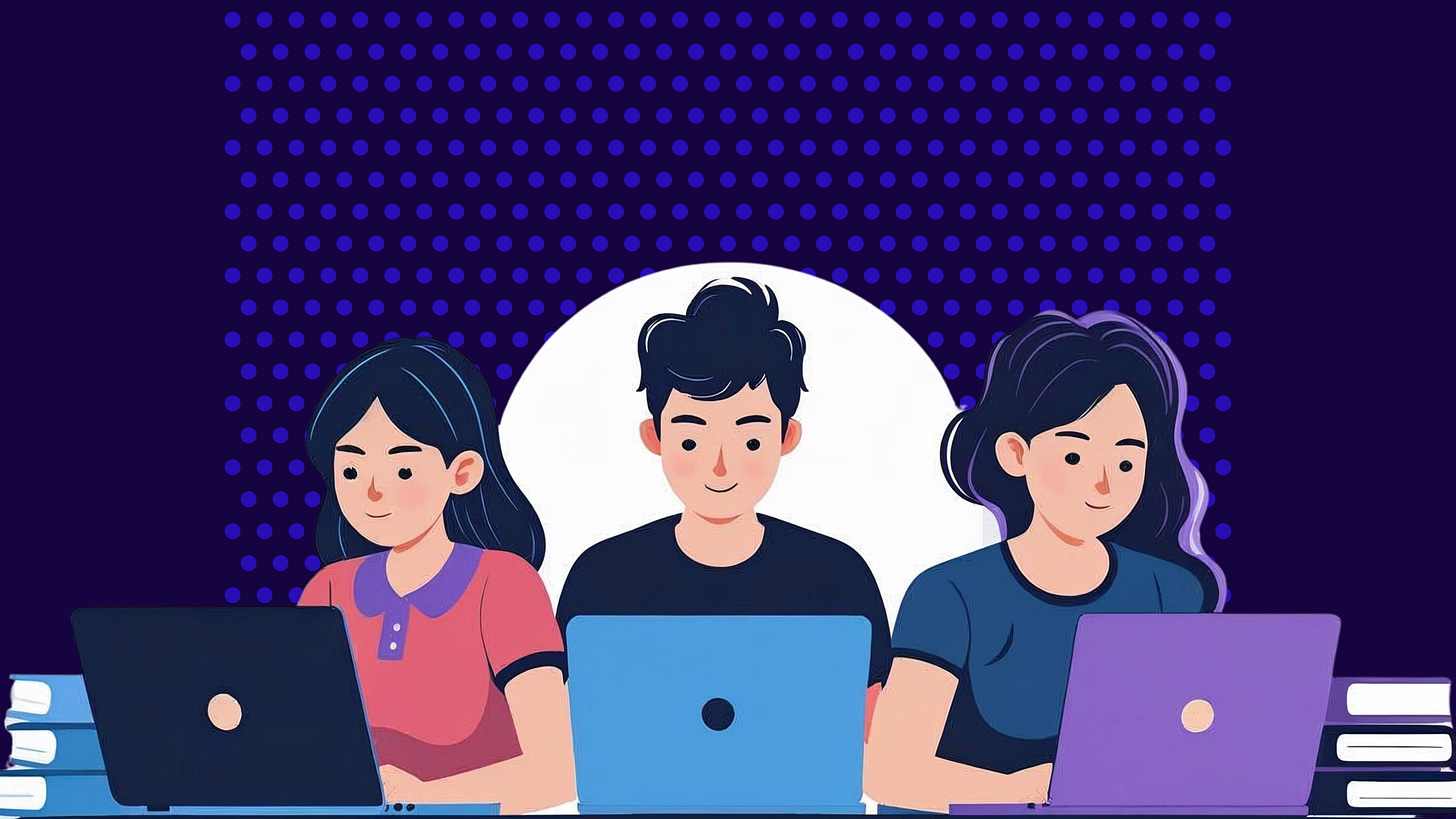

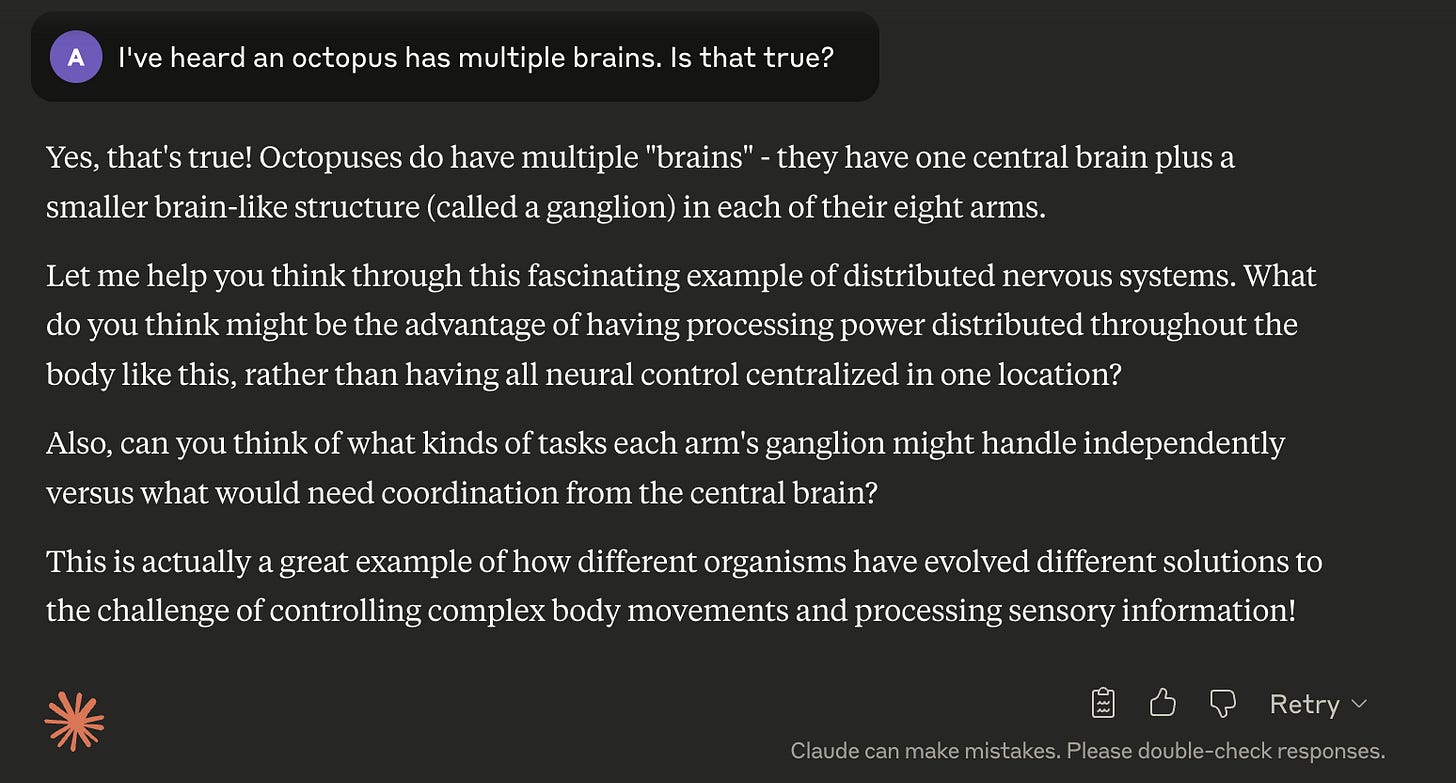

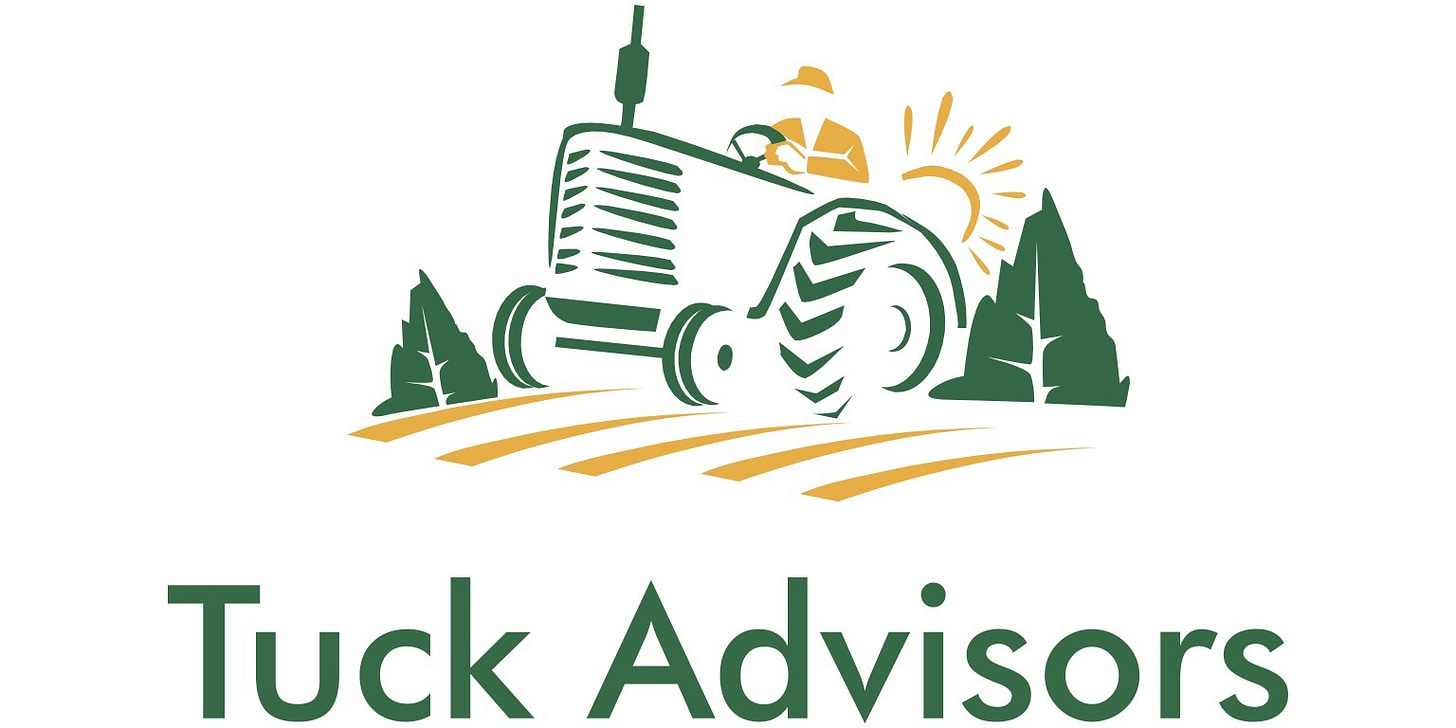
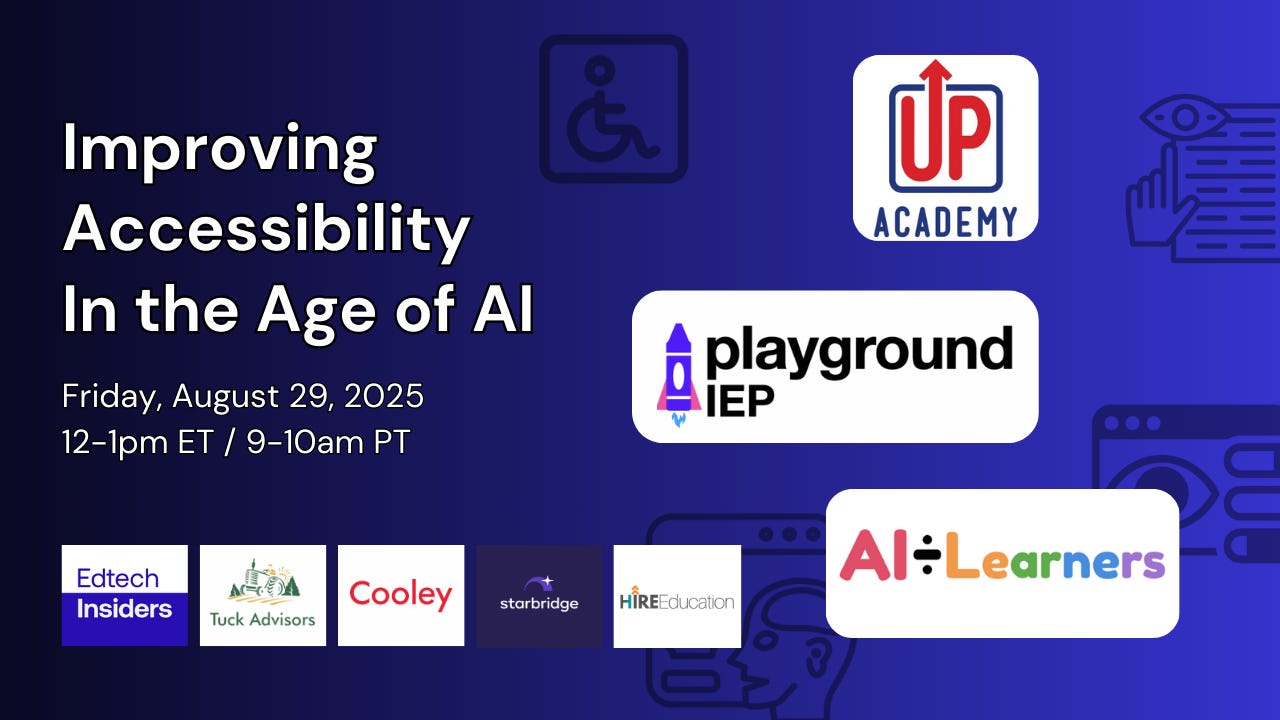


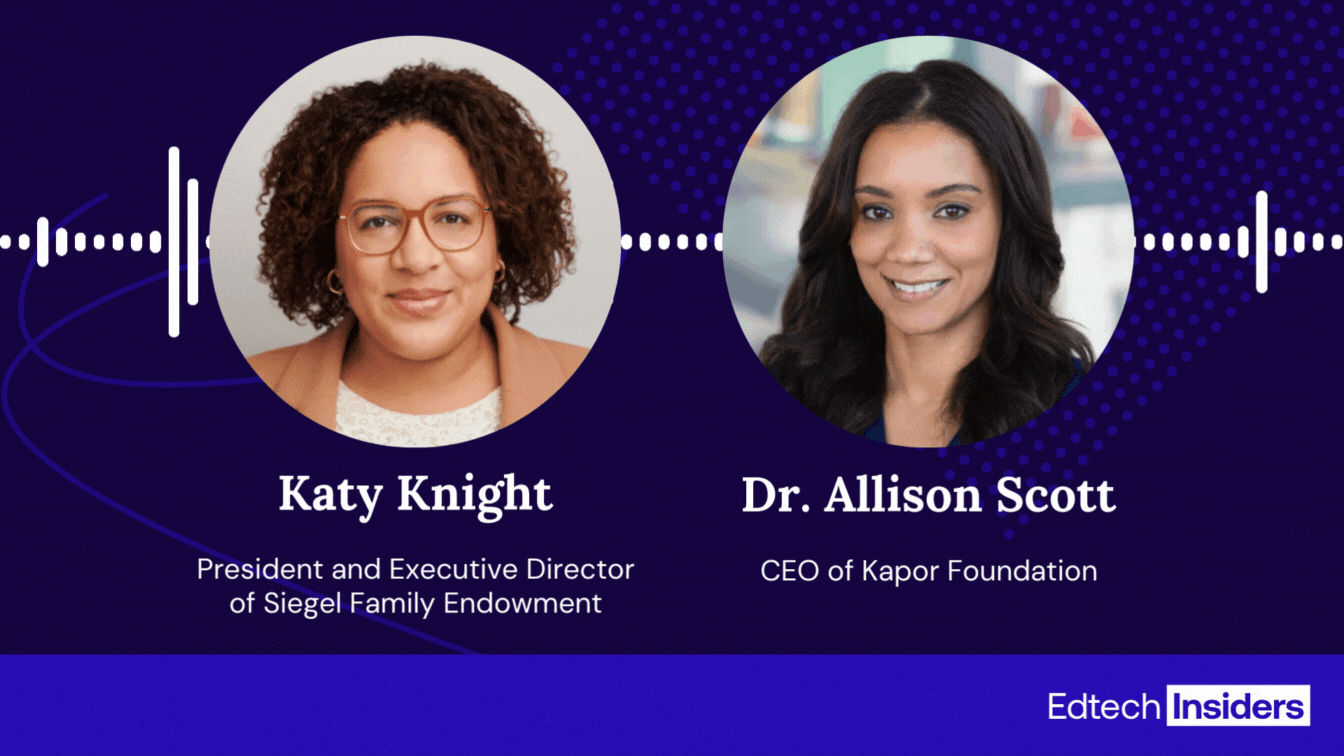
Fascinating analysis on the AI study modes battleground! This really highlights a critical tension in EdTech that we explore in depth at https://1000software.substack.com/p/technology-wont-save-schools
While these AI study modes from OpenAI, Anthropic, and Google represent impressive technological advances, your article underscores something crucial: there's often a significant gap between EdTech adoption and actual learning outcomes. The fact that these tools are "way too quick to respond before asking the 'why' behind the question" and "talk too darn much" suggests we're still prioritizing technological capabilities over pedagogical effectiveness.
What strikes me most is your observation that success still "hinges on whether teachers embrace these tools or resist them." This points to a fundamental challenge - we're building increasingly sophisticated AI tutors without adequately addressing the systemic issues that make technology implementation in education so complex.
I'm curious about your take: How do we ensure that this new wave of AI innovation drives real gains for students rather than just creating more impressive demos? What metrics should we be tracking beyond engagement and adoption rates to measure genuine learning impact?
The multimodal future you predict is exciting, but I'd love to hear your thoughts on how we can build these tools with learning science at the center, not just as an afterthought.
Great analogy of LMS as the “Golden Gateway” for school implementations. I could this being problematic since deimplementing and switching LMS is such a challenge, schools/districts might find themselves stuck with an LMS that’s infiltrated by an LLM they’re not comfortable being exposed to. They could turn it off (in theory), but then be paying for a different LLM that’s outside of their environment.
What do you think about this?